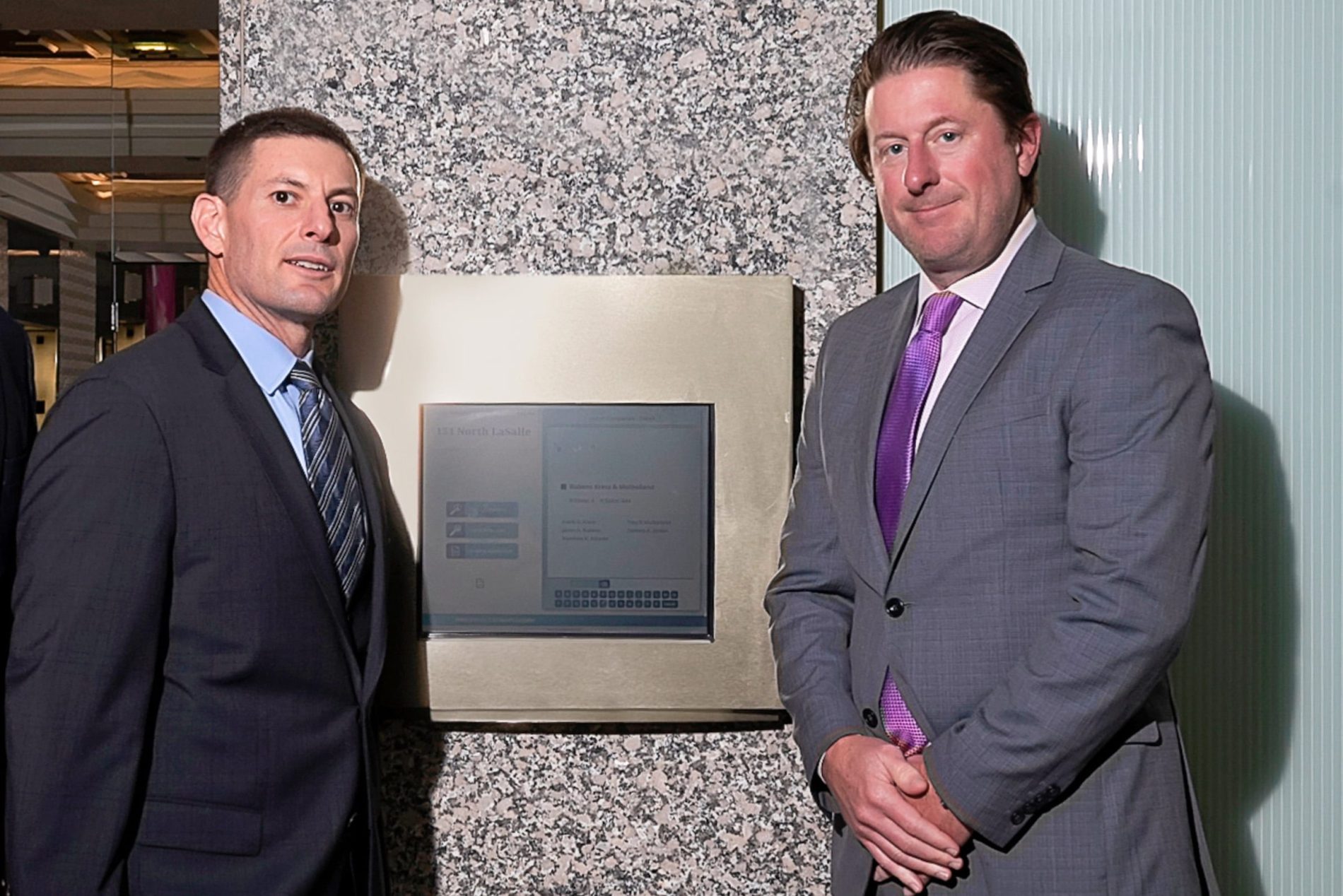Personal Injury Attorneys
Representing individuals in Chicago and across Illinois to help win their personal injury cases

We are ready to represent you in your personal injury case.
Our personal injury attorneys are dedicated to representing individuals in personal injury matters in Chicago and Illinois cases. If you have suffered a personal injury due to the negligence of a third party, you should contact a personal injury attorney as soon as possible.
“My personal experience with Rubens & Mulholland was extremely professional along with a great deal of common courtesy towards my wife and I. We appreciated everything Toby Mulholland has done with regards to my situation. I have and will always continue to recommend Rubens & Mulholland law firm.”
Our attorneys are prepared, experienced and dedicated to getting you the support you deserve.
Personal Injury Cases & Settlements
- $369,500.00 for a client who suffered from a fractured clavicle with surgery and a fractured leg as a result of an accident caused by a semi truck.
- $300,000.00 (Policy limits) for the victim of a dog attack that sustained permanent scars and an arm injury requiring surgery.
- $175,000.00 for a client who required a cervical spine fusion due to a slip and fall accident at her apartment complex with heavily disputed liability that occurred during a power outage.
Types of personal injury cases
Chicago personal injury attorneys at Rubens & Mulholland have extensive experience litigating the following types of injuries (and many more):
- Accidents on Personal Injury
- Amputations
- Asthma
- Brain damage
- Building discs
- Car accidents
- Carpal Tunnel Syndrome
- Concussions
- Cubital Tunnel (Extensive Trial Experience)
- Death Claims
- Dog Bites
- Epicondylitis
- Exposure to Harmful Materials
- Fractures (displaces, non-displaces, spiral, operated and unoperated)
- Herniated discs (operated and unoperated, cervical spin, lumbar spine)
- Impingement syndrome
- Knee injuries
- Loss of vision
- Torn ACL
- Torn Labrum
- Torn Ligaments in Ankle
- Torn Ligaments in Wrist
- Torn Meniscus
- Torn Rotator Cuff
- Ulnar Entrapment
When to file a personal injury lawsuit
Deciding whether to bring forward a personal injury claim
If you’ve suffered harm due to someone else’s negligence or intentional misconduct, you may be entitled to compensation. Filing a lawsuit can help you recover costs for medical bills, lost wages, and emotional distress. If you believe you’ve been wronged, don’t wait. Understanding your rights and taking timely action is crucial to ensuring justice and securing the compensation you deserve. Your ability to move forward with a personal injury claim is often dependent on the following factors:
- You have suffered physical harm due to the actions of another person.
- You are able to prove that another party was at least partially responsible for your personal injury.
- You have acted quickly enough to preserve your right to initiate a claim — this includes seeking medical attention and hiring an Illinois personal injury lawyer to help guide you through the process.
It is important to note that you do not need to prove that you were harmed intentionally. Many Illinois personal injury cases are the result of mistakes or inattention from the party causing the injury. Even in cases where you were partially at fault, you may still be able to move forward with your Illinois personal injury claim. Every situation is different, so the best course of action is to consult an attorney for guidance on your case.
Benefits of filing a personal injury case in Illinois
- Compensation for Damages: Injured individuals can seek restitution for medical bills, lost income, and even emotional distress caused by another’s negligence.
- Protection Under Law: Illinois laws ensure the rights of claimants are prioritized throughout the litigation process.
- Promote Responsibility: By holding wrongdoers accountable, personal injury cases in Illinois encourage safer behaviors and practices, reducing the chance of similar incidents in the future.
- Recovery Despite Partial Fault: Illinois uses a modified comparative negligence system. This means even if you’re partially to blame for the accident, you can still recover damages as long as you’re less than 50% at fault.
Hurt on the job?
Schedule a free consultation with the top workers’ comp lawyers in Chicago – no fees unless you collect.

Meet our experienced Personal Injury Lawyers
Getting hurt either at work or through third-party negligence can be a traumatic experience.
This event can result in medical bills, pain and suffering, and/or possible loss of income. During this time, you don’t deserve to be lost in the shuffle of a big firm. You need personalized legal advice you can trust.
Jason H. Rubens has managed his Illinois workers’ compensation and personal injury practice since 2001. He has separated himself from other workers’ compensation attorneys through his compassion for his clients and his aggressiveness for their rights.
Our locations
If you’ve been hurt, and are seeking to initiate a personal injury claim, turn to Chicago workers’ comp attorneys with extensive experience handling such cases.
Contact our team of experienced and dedicated personal injury lawyers today to get started on your case. There are no fees unless you collect.
To get started, fill out the form below or call now at 312-201-9640.
Frequently asked questions about personal injury lawsuits
If you don’t see an answer to your question, or want further details, please contact our law firm today!
These attorneys specialize in tort law, which includes both negligent acts and intentional acts. Personal injury attorneys provide legal representation and pursue compensation for victims of an accident.
Personal injury refers to physical or emotional harm suffered due to another party’s negligence or intentional misconduct. Common examples include car accidents, slip and falls, medical malpractice, and product defects.
You can typically claim economic damages (like medical bills and lost wages), non-economic damages (like pain and suffering), and in some cases, punitive damages meant to punish particularly reckless behavior.
While many personal injury cases settle out of court, some do proceed to trial, especially if parties can’t agree on fault or compensation amounts.
This varies widely based on the case’s complexity, the willingness of parties to settle, and court backlog. It could take anywhere from a few months to several years.
Ensure safety first, then collect evidence (like photos), seek medical attention even if injuries seem minor, get witness contact information, and report the incident (e.g., to police or property management). Avoid admitting fault or discussing details on social media.
You can still sue the responsible party directly, but collecting compensation might be challenging. Alternatively, you might be covered by your own insurance policy, such as uninsured motorist coverage.
Only a small number — the vast majority are settled outside of court. However, a good amount of cases settle only after a lawsuit is filed and the case is aggressively litigated and several depositions are taken.
In some instances, personal injury cases are settled without going to court. Other times a lawsuit has to be filed because both sides do not agree on the liability or the extent of the damages or both. Often a case settles after various points of litigation such as after you give your deposition.
Visit our learning center to read more about personal injury claims and cases
